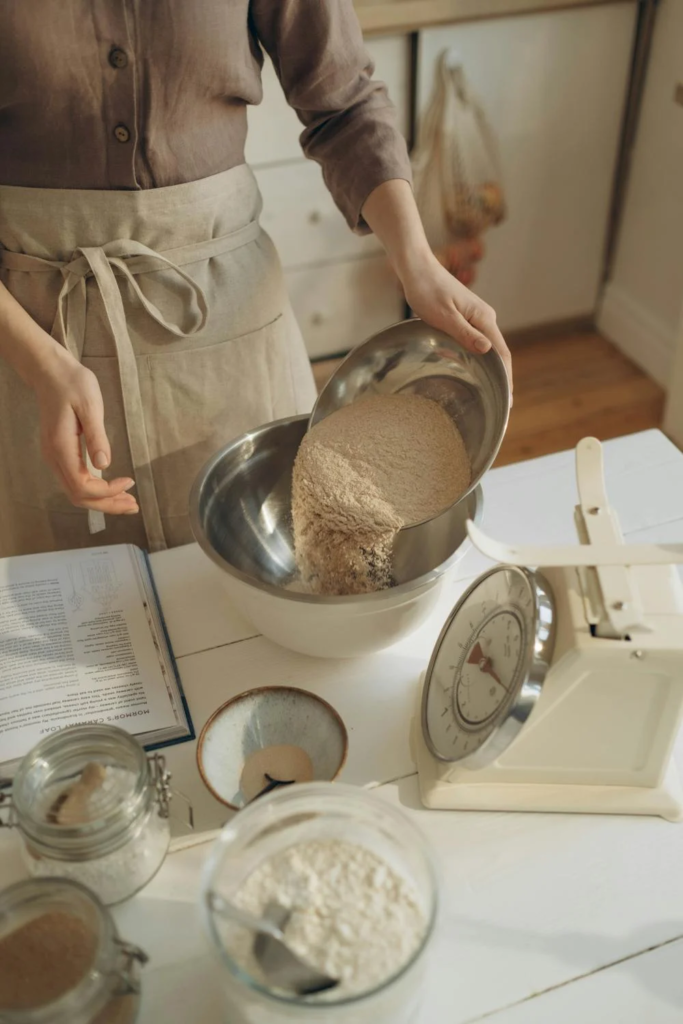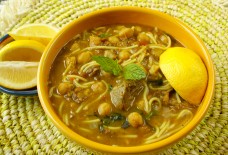The Power of Cookbooks: Breaking Stereotypes One Recipe at a Time

By: Khelil Bouarrouj / Arab America Contributing Writer
When I first picked up Salma Hage’s The Levantine Vegetarian, I wondered if we really needed another Middle Eastern cookbook. After all, its publisher, Phaidon, has released several in recent years, including The Arabesque Table, The Palestinian Table, The North African Cookbook, and Middle Eastern Sweets—the latter also by Hage. This review alone will feature two new books by Phaidon: the aforementioned collection of Levantine dishes and Persian Feasts by Leila Heller. And yet, the answer to whether we need more is a resounding yes, for reasons both personal and political.
Many of Hage’s recipes will be familiar to readers and home cooks who have picked up other Middle Eastern cuisine guides. But Hage’s work is not a mere copy; her specific focus on vegetarian and vegan dishes appeals to a growing number of health-conscious Western consumers. They will be richly rewarded with lush dishes to share over leisurely meals, as well as practical options for quick weekday dinners. The pages convey a colorful, earthy bounty of Levantine ingredients—a region Hage expands to include parts of Turkey, Egypt, and Cyprus. She notes that while Levantine cuisine is wonderfully diverse, it shares a common culinary heritage shaped by trade and migration. One stand-out dish, Celebration Pie, combines lentils and grains, tomatoes, ricotta, and onions seasoned with cumin, cardamom, and a pinch of saffron (Hage recommends sourcing it from Iran if you can) under a crunchy phyllo crust. Like many recipes here, the pie is both healthy and hearty—a win-win for vegetarian eaters.
But there’s another reason we need books like these: food is politics. Cuisine humanizes regions and people, challenging stereotypes. As an Arab-American, I once thought our community had moved beyond the worst prejudices after September 11, 2001. Writing for the Washington Blade in 2022, I celebrated the new visibility of Arab-Americans in the U.S.—affirming stories in shows like Ramy, the election of a Palestinian Congresswoman, and a new wave of cookbooks (like Arabiyya by the inventive Palestinian-American chef Reem Assil). But as Ramy creator Ramy Youssef put it after October 7, 2023: “I thought it was over. But the brand is weak.” He went on to say he was done apologizing and vouching for his peaceful nature, even joking about a “rebrand” for Arabs.
Youssef spoke for many of us. I, too, thought it was over, yet I’ve never felt more alienated in my country than I have over the past year. So, yes, we need every cultural contribution that can help change the conversation. Reading The Levantine Vegetarian, it struck me that the Levant shares much with California: sun-soaked beaches, fertile hills, and a food culture built on fresh vegetables, herbs, and spices. Why, then, is the Levant associated more with conflict than with a California lifestyle? Perhaps ignorance, more than blind prejudice, is to blame.
Reducing the Levant to turmoil has long justified violence against its people by Israel and its Western allies. I realize now that change may take longer than I’d hoped, but every cultural offering is an act of resistance and an affirmation of our heritage.
If Arab cuisine benefits from this kind of visibility, Iranian cuisine also deserves it. Persian Feasts by Leila Heller, along with Lila Charif, Laya Khadjavi, and Bahar Tavakolian, achieves this by offering not just recipes but a rich cultural context. The authors include chapters like “Food and Hospitality in Safavid Iran” by Dr. Massumeh Farhad of the Smithsonian, presenting a concise history of one of Persia’s most influential empires and its culinary heritage. At a time when Middle Eastern dishes are frequently appropriated—think of “Israeli cuisine”—it’s refreshing to see a book that confidently claims its cultural roots. An article by art historian Dr. Talinn Grigor on culinary influences in Iranian modern art adds a beautiful close.
What makes Persian Feasts especially charming is Heller’s personal touch, her stories about her mother, whom she affectionately calls Nahid Joon, and her grandmother. It’s a reminder that home cooking is where many chefs first find inspiration. As for the recipes: a curry stew with apples and mangos (or plums or peaches) was a delightful surprise. Eggplant and barberry rice look absolutely regal, and as a fan of rose water and cardamom, I was thrilled to discover a pudding that combines the two, called Masghati.
Whether Persian or Arab, we need more of this—books that reclaim our stories, one dish at a time.
Check out our blog here!








